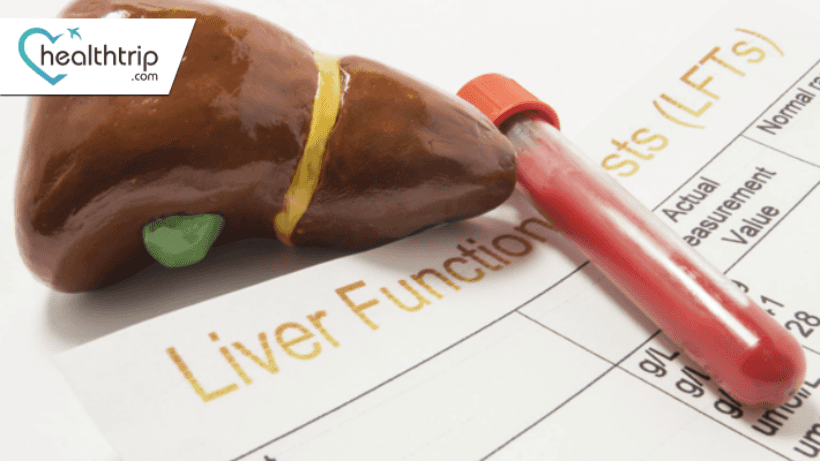
Guide to Liver Function Tests: Everything You Need to Know
06 Sep, 2023
 Healthtrip Team
Healthtrip TeamIntroduction
Today, we're diving into the world of liver function tests, shedding light on these important assessments of your liver's health. Before we get into the nitty-gritty of liver function tests, let's take a moment to appreciate the vital role the liver plays in our bodies. It's like your body's personal superhero, performing a range of crucial functions, from detoxification to metabolism. Why are we delving into liver function tests, you ask? Well, the purpose of this blog post is to help you understand what these tests are all about, why they matter, and what they can reveal about your liver's condition. So, buckle up, because we're about to get into some fascinating stuff!
What Are Liver Function Tests?
Liver function tests, or LFTs for short, are a set of blood tests that provide insights into how well your liver is working. Think of them as a report card for your liver's health. These tests can help diagnose liver diseases, monitor ongoing conditions, and even detect problems before they become serious.
Most popular procedures in India
Types of Liver Function Tests
Now, let's talk about the different players in the liver function test team:
- ALT (Alanine Aminotransferase): Measures liver enzyme levels to assess liver damage or inflammation.
- AST (Aspartate Aminotransferase): Evaluates liver, heart, and muscle health; elevated levels may suggest liver damage.
- ALP (Alkaline Phosphatase): Assesses liver and bone health; elevated levels can indicate liver disease or bone disorders.
- GGT (Gamma-Glutamyl Transferase): Measures liver and bile duct function; elevated levels suggest liver or bile duct issues.
- Bilirubin: Determines liver and bile duct function; elevated levels may indicate liver disease or bile duct problems.
- Albumin: Evaluates liver function and nutritional status; low levels may indicate liver disease or malnutrition.
- Prothrombin Time (PT) and INR (International Normalized Ratio): Measures blood clotting ability; prolonged times may indicate liver damage.
- Hepatitis Serology: Identifies antibodies or antigens related to hepatitis viruses (e.g., hepatitis A, B, C) to diagnose viral hepatitis infections.
These tests provide crucial information about liver health and help diagnose various liver conditions, from inflammation to viral infections. Interpretation should be done by a healthcare professional for accurate assessment and treatment guidance.
Wellness Treatments
Give yourself the time to relax
Lowest Prices Guaranteed!

Lowest Prices Guaranteed!
Significance of Different Liver Function Tests
Each of these tests provides a unique piece of the puzzle when it comes to your liver's health. By looking at all of them together, doctors can get a comprehensive view of what's happening inside this amazing organ.
So there you have it, a sneak peek into the world of liver function tests! In the upcoming sections, we'll dive deeper into each of these tests, explaining how they work and what abnormal results might indicate. Stay tuned for more liver-loving insights!
Why Are Liver Function Tests Done?
A. Medical and Diagnostic Purposes
Liver function tests aren't just routine check-ups; they serve crucial medical and diagnostic purposes. They help doctors get a snapshot of your liver's condition, which can reveal a lot about your overall health.
B. Detecting Liver Diseases and Disorders
One of the primary reasons for these tests is to detect liver diseases and disorders. Elevated enzyme levels or abnormal bilirubin can be red flags that something's amiss in your liver, such as hepatitis, cirrhosis, or fatty liver disease.
C. Monitoring Liver Health During Treatment
Liver function tests are like progress reports during treatment. If you're undergoing therapy for a liver condition, these tests help your healthcare team monitor how well your liver is responding to treatment. It's all about making informed decisions to improve your health.
D. Research and Clinical Trials
Liver function tests also play a role in the world of research and clinical trials. They're used to evaluate the impact of new medications or therapies on liver function. So, in a way, they're helping shape the future of liver healthcare.
The Procedure: How Liver Function Tests Are Done
A. Step-by-Step Description of the Testing Process
So, how does it all go down? Here's a quick rundown of the liver function test procedure:
- Blood Sample Collection: First, a healthcare professional will draw a small amount of your blood, typically from a vein in your arm. Don't worry; it's a routine procedure that's done quickly and safely.
- Laboratory Analysis: The collected blood sample is sent to a laboratory, where it's analyzed for levels of ALT, AST, ALP, and bilirubin. The lab technicians work their magic to provide the results.
B. Variations in Procedure for Different Liver Function Tests
While the basic procedure remains the same, the specific tests conducted can vary. For example, some liver function tests may require fasting before the blood draw, while others may not. Your healthcare provider will guide you on any special preparations needed for your specific tests.
C. Importance of Skilled Healthcare Professionals
Last but not least, let's emphasize the importance of having skilled healthcare professionals perform and interpret these tests. They're the ones who ensure accuracy and provide valuable insights into your liver's health. So, trust in the experts to guide you through this process.
That wraps up our exploration of why liver function tests are done and how they're carried out. In the next section, we'll delve into what your test results might mean and what actions to take based on those results. Stay curious and stay healthy!
How to Prepare for Liver Function Tests
A. Pre-Test Instructions and Guidelines
Before you roll up your sleeves for liver function tests, it's important to follow some pre-test instructions. These might include staying hydrated, avoiding strenuous exercise before the test, and wearing loose clothing for easy blood sample access.
B. Dietary and Lifestyle Considerations
What you eat and drink can impact liver function test results. Your healthcare provider might recommend avoiding certain foods or drinks, such as alcohol or fatty meals, in the hours leading up to the test. A balanced diet and regular hydration can also help maintain liver health in the long run.
C. Medication Adjustments
If you're taking medications, especially those that affect the liver, it's crucial to inform your healthcare provider. They may advise you to temporarily adjust your medication regimen or to continue as usual. Honesty about your medications is key to accurate test results.
D. Fasting Requirements (If Applicable)
Some liver function tests, like fasting blood sugar or fasting lipid panel tests, may require you to fast for a specific period beforehand. This means no food or drinks other than water for a set number of hours. Be sure to follow your healthcare provider's fasting instructions carefully.
Things to Keep in Mind
A. Common Misconceptions About Liver Function Tests
There are some myths floating around about liver function tests. One common misconception is that abnormal results always mean you have a serious liver problem. In reality, abnormal results can be caused by various factors, and further evaluation is often needed.
B. Potential Discomfort or Side Effects
While liver function tests are generally safe, it's normal to experience mild discomfort or bruising at the blood draw site. Some people might also feel lightheaded or faint. If you have concerns or experience severe discomfort, don't hesitate to communicate with your healthcare provider.
C. Special Considerations for Specific Patient Groups
Certain groups of people may need special considerations for liver function tests. For example, pregnant individuals or those with preexisting medical conditions may have unique requirements or interpretations of their test results. Always discuss your specific situation with your healthcare provider.
D. Follow-Up Actions After Receiving Test Results
Once you have your test results, your healthcare provider will interpret them and discuss the next steps with you. Depending on the results, you may need additional testing, lifestyle changes, or treatment. It's important to follow up as advised to maintain your liver health.
And there you have it, a comprehensive guide on preparing for liver function tests and what to keep in mind throughout the process. Remember, these tests are a valuable tool in understanding and maintaining your liver health, so stay informed and proactive about your well-being!
Interpreting Liver Function Test Results
A. Understanding Normal Reference Ranges
When you receive your liver function test results, it's essential to understand what's considered normal. These reference ranges can vary slightly from one laboratory to another but generally fall within a specific range for each test. Your healthcare provider will compare your results to these ranges to determine if they're within the expected values.
B. Interpreting Abnormal Test Results
If your liver function test results are outside the normal reference ranges, it doesn't necessarily mean you have a severe liver problem. Abnormal results can occur for various reasons, including medications, infections, or even temporary factors like a recent meal. Your healthcare provider will consider these possibilities and may recommend further testing to pinpoint the cause.
C. Implications of Abnormal Liver Function
Abnormal liver function can have different implications, depending on which specific test or tests are outside the normal range. Elevated liver enzymes (ALT and AST) might indicate liver inflammation or damage, while high bilirubin levels can suggest problems with bile flow. Your healthcare provider will use these results, along with your medical history, to determine the best course of action, which could range from lifestyle changes to further investigations or treatments.
Risks Associated with Liver Function Tests
- Minor discomfort or pain at the blood draw site.
- Bruising at the puncture site.
- Lightheadedness or faintness during or after the procedure.
- Very low risk of infection at the site of blood collection.
- Rare instances of excessive bleeding or hematoma.
- Extremely rare allergic reactions to materials used.
- Discomfort or hunger if fasting is required for specific tests.
Read more: Top 10 Liver Specialists in India
Applications and Benefits
- Clinical Applications: Liver function tests are crucial for clinical purposes, aiding in the diagnosis, monitoring, and management of liver diseases and conditions.
- Early Detection: They excel at early detection, spotting liver issues before symptoms manifest, enabling timely intervention.
- Disease Management: These tests play a pivotal role in tailoring treatment plans, optimizing liver disease management, and assessing treatment effectiveness.
- Advancements in Research: Liver function tests contribute to ongoing liver research efforts, facilitating a deeper understanding of liver health and driving medical advancements in hepatology.
Understanding liver function test results and the associated risks is key to maintaining your liver health. If you ever have questions or uncertainties, don't hesitate to reach out to your healthcare provider for clarification and guidance. Your liver is a vital organ, and taking care of it is essential for your overall well-being.
In conclusion, understanding and prioritizing your liver health through regular liver function tests is key to maintaining overall well-being. These tests offer early detection, personalized treatment options, and support ongoing research. By consulting healthcare professionals, you empower yourself to make informed decisions about your liver health. So, let's commit to caring for our liver, the unsung hero of our body's health, and ensure a vibrant and healthy life.
Read more : Facts You Need To Know About Liver Transplant
Related Blogs
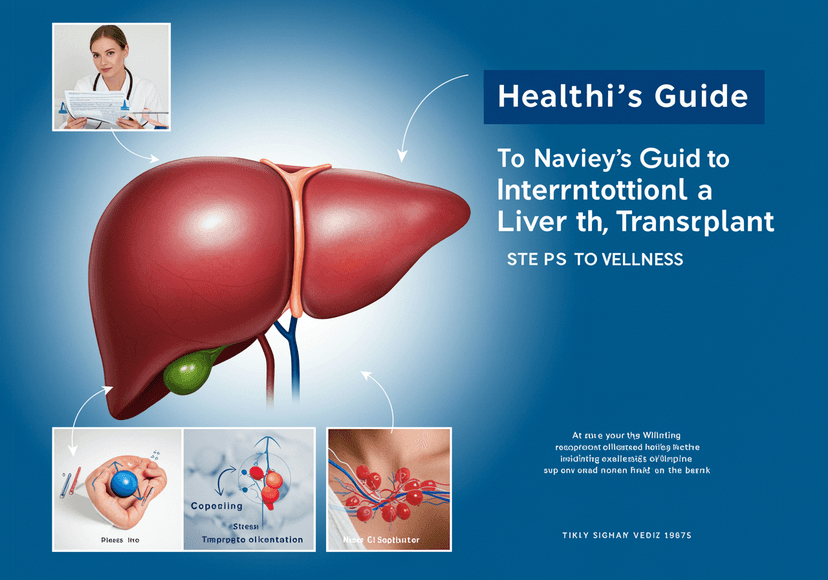
Healthtrip's Guide to Navigating an International Liver Transplant: Steps to Wellness
Discover Healthtrip's step-by-step guide for an international liver transplant, covering
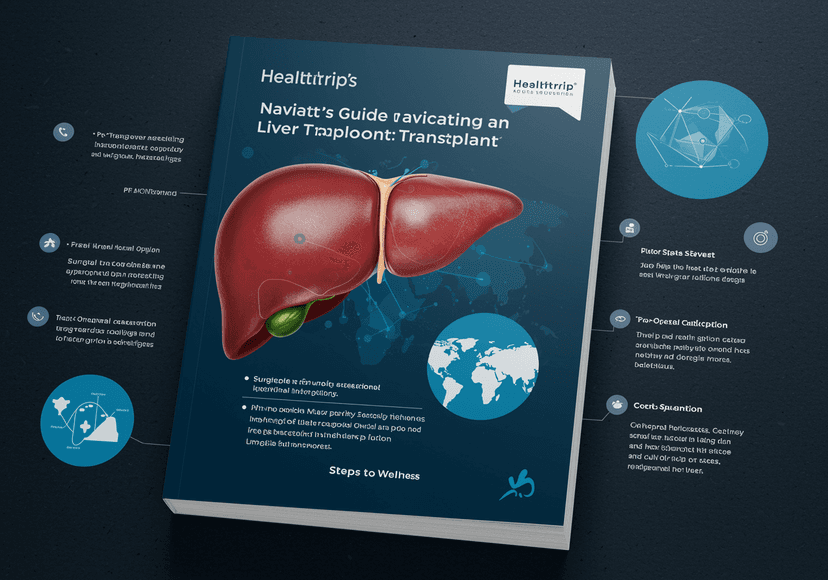
Healthtrip's Guide to Navigating an International Liver Transplant: Steps to Wellness
Discover Healthtrip's step-by-step guide for an international liver transplant, covering

Healthtrip: Access World-Class Liver Transplant Specialists Globally
Medical Tourism Experts

Living with Liver Cirrhosis: Coping with Emotional Challenges
Discover ways to cope with the emotional challenges of living
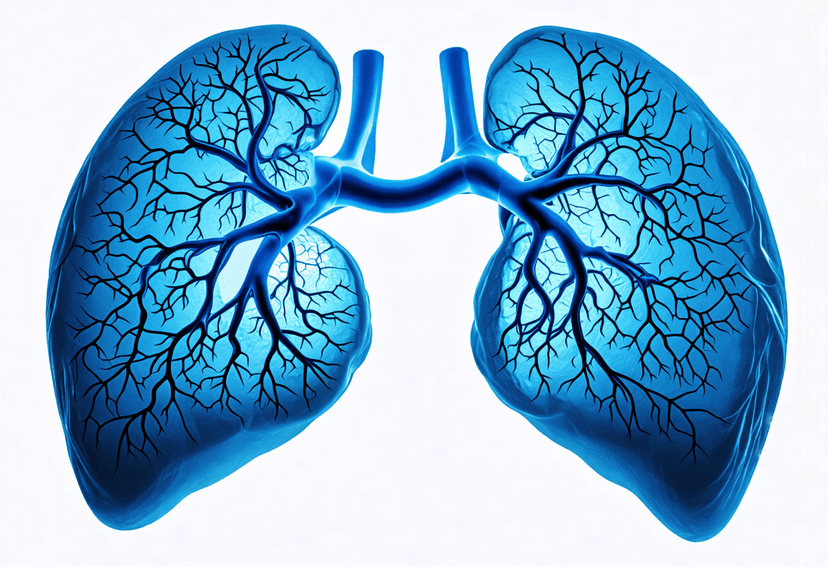
Cirrhosis and Hepatitis: The Connection
Understand the connection between cirrhosis and hepatitis, and how to
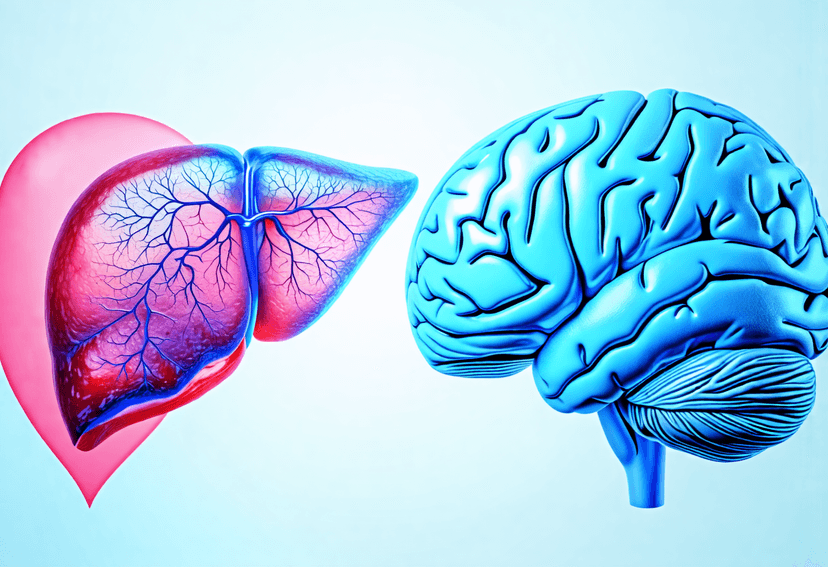
Liver Cirrhosis Diagnosis: Tests and Procedures
Learn about the tests and procedures used to diagnose liver










